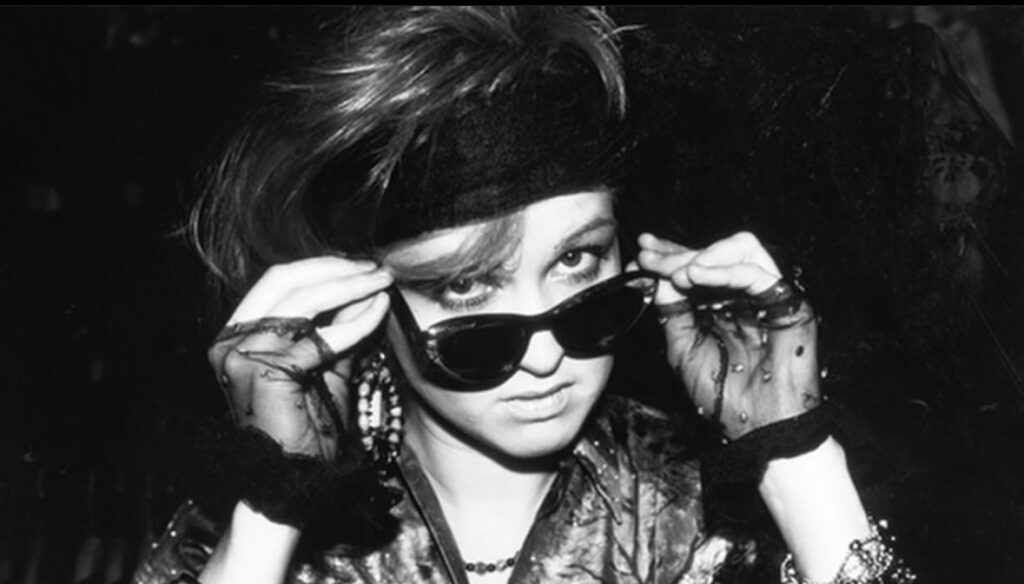Cyndi Lauper on One Friday afternoon in May, Cyndi Lauper stepped out of her Upper West Side apartment building and into the streets of New York City. She wore glitter-encrusted glasses, sneakers with rainbow soles and a stack of beaded bracelets on each arm. A rice-paper parasol swung in her hand. As she walked, she examined the crowds and remarked when glints of interest caught her eye.
“Of course, here it’s fashion hell,” she allowed of her tony neighborhood. And yet, every few blocks she rubbernecked at another woman’s look, her famous New Yawk accent lifting and tumbling in pleasure at what she saw:
“Look at this lady,” she said, stepping off the curb and clocking a passerby. The woman moved nimbly, tomato-red streak in her silver hair, body draped in shades of fuchsia and cherry as she pushed the gleaming metal frame of a walker. “Fabulous,” Lauper exclaimed. “Come on!”
At 70, the pop icon and social justice activist isn’t just charging back into the streets. On Monday, Lauper announced her final tour, the Girls Just Wanna Have Fun Farewell Tour, which will have her headlining arenas across North America from late October to early December. And “Let the Canary Sing,” a documentary about her life and career that premiered at the Tribeca Festival last year, is streaming on Paramount+.

Lauper has not staged a major tour — “a proper tour, that’s mine” — in over a decade. But now her window of opportunity is closing, so she’s leaping through it. “I don’t think I can perform the way I want to in a couple of years,” she said. “I want to be strong.”
And until recently, when she finally agreed to sit for the director Alison Ellwood, she could not envision committing her life story to film. “I wasn’t going to do a documentary because I’m not dead,” she said. More to the point, she did not feel particularly misunderstood. From the moment she danced across the city in the 1983 video for “Girls Just Want to Have Fun,” she felt that she had articulated precisely what she wanted to say.







